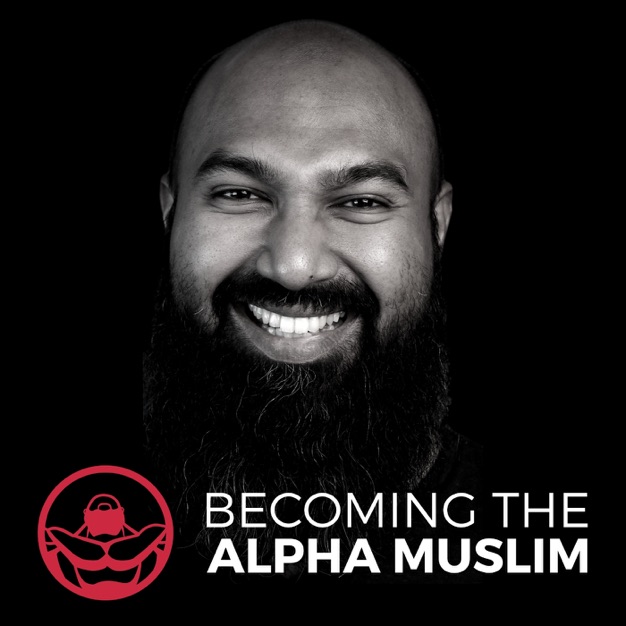
Becoming the Alpha Muslim
Nabeel Azeez
Hi there, I'm your host Nabeel Azeez. Join me and my guests as we give you practical advice on how to develop yourself and reach your potential mentally, physically, and spiritually. New episodes every week.
- 51 minutes 50 secondsTERRIBLE Audio EPIC Content - BBC Interviews MuslimMan™ Founder Nabeel Azeez
If you can bear with the awful audio quality of this recording, you are going to really enjoy this interview. Recently, I was interviewed by the BBC for their Heart and Soul podcast for a documentary about the rise of the Muslim manosphere.
When I recorded this interview, I had to do it off of a screen share. I didn’t get the Zoom recording. I asked them for the recording but they refused, it’s not something they do. So I had to ninja record it. Alhamdulillah that I did, because they used less than 5% of a 45-minute interview.
But the audio quality turned out to be really bad. So I had to manually go through and increase the levels when the host spoke. That took several hours. But it’s done now and the podcast is out on BBC too. You can listen to it here.
What I would suggest though, is that you listen to this interview first and then go listen to the Heart and Soul documentary. Because the full unedited interview will give you more context on what we talked about, the tone of the discussion and the overall vibe, as opposed to the chopped-up clips that you’re going to hear on the BBC Heart and Soul podcast, which were edited to fit the story that they were trying to tell.
So here’s the interview. Enjoy. Let me know what you think in the comments. And remember to subscribe to our newsletter.
19 May 2023, 3:49 pm - 1 hour 39 minutesBoys in the Cave or BOYS CAVING IN?
The Boys In The Cave podcast recently interviewed Becoming The Alpha Muslim. After publishing the episode, they faced criticism and pressure from SJW Muslims online. They caved to the pressure and took down the episode. Here is the full, unedited interview for your listening pleasure.
Full show notes are available here: http://bit.ly/boysinthecave
14 January 2019, 12:26 pm - 1 hour 40 minutesMuslimah Serial Entrepreneur Hodan Ibrahim on Minority Business Owners, Self-Worth, Feminism, Polygyny, and More
I first came across Hodan Ibrahim in 2016, when she basically dropped everything she was doing in Canada and moved to Dubai to organize and host M-Powered Summit.
This was a first-of-its-kind conference on Muslim startups and entrepreneurship.
I ended up interviewing her and her co-founder for Ilmfeed, and also did writeups of the event.
I haven't seen one like it, since.
She hosted another, similar conference in Malaysia then next year, and has since moved on to bigger and better things.
You see, Hodan is a serial entrepreneur.
So the easiest thing that I did, and the hardest thing that I did, was becoming an entrepreneur. Um, it's, it's who I am. And I started out by failing a bunch of times and having little digital startups. The first company that worked out for me was a digital marketing agency that I had, um, and Alhamdulillah, after like three months. I went full-time on that.Being an entrepreneur is "cool" now...every other Instagram profile has the title splashed across their bio.
But Hodan was in the entrepreneurship Game long before it was even a thing.
As a first-generation, Somali-Canadian immigrant Muslim (her family fled because of the war,) she ticked multiple minority status boxes...
And frequently found herself the only black woman in a room full of white men.
There was not a single person of color in any of these rooms that could understand my perspective...I remember one incident where I went to CBC (Canadian Broadcasting Corporation.) This was the first event that I ever did, in Ottawa, and it was about supporting entrepreneurs of color. And I went and got an interview with the CBC, and they're just like, "Why does it matter if an entrepreneur is a person of color?...why can't you just learn from all types of entrepreneurs? Why don't you have white entrepreneurs?"None of this stopped her.
What's interesting to me is how she didn't let her hamster run wild and create a narrative of victimhood (Feminism, Patriarchy, Toxic Masculinity, yadda yadda yadda.)
She just did what she had to do to get where she needed to go.
And it was her faith that aided her.
In this episode of the Becoming the Alpha Muslim podcast, Hodan and I talk about:
- Being a minority business owner as a first generation Somali-Canadian immigrant black Muslimah
- The historical context behind attitudes toward Muslim women today
- Feminism (and why Muslim women don't need it)
- How Muslim women can develop their self-worth and happiness
- Why she's pro-polygyny and thinks its the best relationship arrangement for her personality and lifestyle
- And a bunch of other topics
For complete show notes, visit our blog:
https://becomingthealphamuslim.com/muslimah-serial-entrepreneur-hodan-ibrahim
27 October 2018, 10:44 am - 49 minutes 42 secondsMuslim Men in Journalism: The World's Last Hope Against Fake News
Late last year, I had the chance to sit down to talk to Hussein Kesvani about his work as a Muslim journalist.
A lot happened between then and now that led to me not publishing this podcast episode soon after I recorded it.
I figure now's as good a time as any.
Hussein Kesvani is the UK/Europe editor for Mel Magazine, a publication ostensibly about men and masculinity (though I would argue it's perpetuating modern degeneracy and promoting men being Soyboys.)
This is most certainly a black mark against Hussein, who is otherwise a fine fellow and an accomplished, non-hacky journalist.
He's also written for Buzzfeed, Vice, The Independent, The Guardian, The New Statesman, The Shortlist, and Refinery29.
He's a co-host of the No Country For Brown Men Podcast and also the Trash Future podcast.
Here's what we talked about during our short chat:
- The relationship between a writer and his editor, and why journalists publish pieces that can seem "editorialized" [4:55]
- What journalists and copywriters have in common when writing about "subjects" and clients [8:42]
- The challenge of writing on topics involving Muslims in a non-Muslim publication [13:05]
- How BAME (Black, Asian, and Minority Ethnic) people can get their foot in the door of fast-changing world of modern journalism [17:20]
- Where does Hussein place crowd-funded, independent citizen journalists like Mike Cernovich, Tim Pool, and Lauren Southern in the ecosystem of journalism as a whole [23:58]
- How the definition of "journalism" has changed in recent years [27:18]
- On the journalistic value of what many citizen journalists think passes for journalism [30:09]
- Do mainstream media publications have a responsibility to be impartial and objective? [35:26]
- How can Muslim men get their start in journalism? Hussein gives us practical advice. (Hint: copywriting is an important skill) [39:56]
22 September 2018, 9:36 am - 59 minutes 18 secondsTrump: Year 1 - The Alt-Bro Perspective (feat. Surprise Guest)
It's a little after one year since Donald J Trump was inaugurated as the 45th President of the United States of America.
In this episode, I'm joined by a surprise guest (hint: he's visiting from Chicago) as we talk about Trump's first year as president, the #metoo movement, Hollywood, and accountability.
Show Notes- I reveal our surprise guest [01:19]
- The luxuries of living in a Muslim country only a Muslim can truly appreciated [02:00]
- The one unique trait of Dubai making it the #1 destination for Muslims in the West who want to migrate to a Muslim country [04:00]
- Reclaiming the Alt-Bro…from pejorative to positive [05:30]
- The fundamental error Muslim men make when defining masculinity that makes them deficient in their manhood [09:18]
- Who decides the worth and quality of a man? [11:48]
- The two core attributes of men that, when devalued, lead to a complete breakdown in society [14:00]
- Trumpian communication in context…what the hell is he saying? [15:50]
- So, how did Trump’s first year go? What did he achieve? Where did he fail? How are people reacting to it? [17:00]
- When you frame Trump’s policy-making this way it all makes sense (and the two books where he tells you, “this is what I’m doing”) [24:25]
- The true meaning of the #metoo movement almost no one will admit [28:10]
- How many da’ees and shuyukh are #metoo victims? [31:30]
- The double standard and faulty logic of women’s “empowerment” [32:40]
- The one natural trait women should embrace to get the best out of the men in their lives [35:18]
- A perfect, very recent example of double standards in action - Asmi Fathelbab and Linda Sarsour [36:25]
- A disturbing trend in the behavior of some American da’ees and shuyukh, even though they have trained extensively in our Sacred Tradition [45:20]
- Muru’ah - propriety; the type of permissible behavior that is allowed for different ranks of men, and what kind of behavior violates muru’ah [49:00]
- The one solution to the current situation of the Ummah that most Muslims will dismiss [52:10]
- Our guest gives out some final parting advice [55:20]
20 January 2018, 7:37 am - 1 hour 11 minutesHow to Network like a Pro (feat. Jay Campbell)
Every Muslim man needs to learn how to network in a way that is natural and doesn't seem fake. The key here is to not BE fake. To genuinely be interested in people and want to invest in the relationship.
Today, I'm talking to Jay Campbell, a repeat guest on the Becoming the Alpha Muslim podcast. Jay is one of the best natural networkers I have ever seen, and a master at making feel important and appreciated.
People don't remember what you said. They remember how you made them feel.
During the discussion, you're going to hear us talk about:
- How to introduce yourself to strangers and what to say to make them feel comfortable
- How to stay present and give your conversation partner the attention he deserves
- How to look for areas of commonality and mutual interest
- How to proceed past the initial interaction to create a deeper relationship
- How to maintain contact with a large network and keep relationships warm
- And a few other related topics
For complete show notes, visit: http://becomingthealphamuslim.com/how-to-network-like-a-pro
9 December 2017, 9:36 am - 1 hour 49 minutesHow to Develop Your Personality to Become a More Attractive Husband
My guest this episode is dating and relationship coach, Pat Stedman.
This is his second appearance on the show.
I invited him on to talk to me about how married Muslim men can develop their personalities to become more attractive and sexually desirable to their wives.
This was a very organic discussion, where we both bounced ideas off each other and developed each other’s arguments.
Show Notes:- [00:05] This episode of the Becoming the Alpha Muslim podcast was brought to you by halal bedroom dot com. For a limited time, buy-one-get-one-free offer on your first order. Click here to buy now.
- [02:50] Are millennials and generation Z creating culture or re-creating monoculture? Hipsters in the 5 boroughs in New York are exactly the same as hipsters in Dubai
- [04:50] The cultural cognitive dissonance of the West
- [06:30] The three pillars of attraction - pre-selection, persona, and personality - can be thought of as marketing, sales, and product
- Pre-selection - social status and physical appearance
- Persona - masculinity and social skills (Game)
- Personality - what do you have to offer as a person
- [09:10] Men who have great relationships are strong in at least two and good in one
- [10:15] You can also think of the three pillars in evolutionary terms
- environmental factors (pre-selection) - what types of males are attractive in a society
- behavioral factors(persona) - how these males behave with the opposite sex
- psychological factors (personality) - how they maintain the relationships long-term via relationship dynamics
- [12:30] Pre-selection and persona will get a man up to closing the deal. Personality is what maintains the relationship.
- [13:20] The example of Pick-up Artists. They are very capable of getting a girl’s attention in the beginning but have a hard time holding it afterwards.
- [17:10] There are two dimensions of personality. Psychological growth and maturity, and chemistry (desire) and compatibility (comfort).
- [22:35] The attractiveness of women vs their emotional maturity.
- The younger girls (late teens to early 20s) who men are attracted to are basic bitches.
- The older women (late 20s to early 30s) are the ones bringing more to the relationship than their box.
- The sexual marketplace is so inefficient because there are two marketplaces operating in parallel - the physical and the psychological
- [29:00] The similarities between Muslims and Ahlul Kitab - we’re all having premarital sex and “oral and anal don’t count”.
- [32:00] Marriage is a massive vehicle for psychological growth.
- Couples who get married young and stick together past the difficult years stay married for a very long time and have the best relationships.
- They make each other grow together.
- [36:30] The Western tradition vs the Eastern tradition: the individual is the smallest unit of society vs. the family is the smallest unit of society
- [37:55] Marriage is 50% of your religion. Marriage accounts for so much of your spiritual growth and exercise of many of Islam’s religious duties.
- [40:10] When you’re with someone, a mirror is held up to you. Our romantic desire for someone and being bound to them, forces us to work on ourselves and become better people.
- [42:00] How Nabeel met and married his wife
- [44:20] How long it takes to mature in a marriage and step into your role as the patriarch
- [46:20] Men without children are man-children and women without children are self-absorbed narcissists
- [47:20] You’re never truly ready to get married or have children. Allah provides sustenance for each person. My upward mobility strategy: get more wives and have more kids.
- [49:50] Hypergamy and cognitive dissonance in women.
- [51:40] Islam places a cost of doing business on both genders attempting to fully realize their respective sexual strategies (hypergamy and plate-spinning).
- [54:30] Misconceptions about Islam and polygynous societies, “there are all these unmarried men without sexual access to women”.
- [57:10] Pat impresses us with his knowledge of early Islamic history.
- [58:10] There will always be the bottom end of the bell curve, Muslim or non-Muslim, male or female, who will likely always be single because they have no prospects
- [59:30] Using Myers-Briggs Type Indicators to understand and explain personality. Pat gives us a short primary.
- [1:02:00] I ask Pat to analyze my type - ESTJ-A (People Mastery - Assertive). Pay close attention to this. It’s a little complex to type out.
- [1:07:00] How to become a more well-rounded and attractive husband: develop your inferior function. In my case, Introverted Feeling.
- [1:08:50] How to develop your personality functions. The first step is to become aware of your type and your behavior in particular situations. Then you work to consciously exercise these inferior function behaviors.
- [1:12:30] The difference between persona and personality. Persona is masculinity. So, developing a well-rounded and integrated personality does not affect your status as a masculine male.
- [1:15:45] I ask Pat to interpret some of my rash and spontaneous behavior, despite being primarily logic and routine based. He says this is the development of my Extraverted Intuition.
- [1:19:50] Pat’s type makes him someone who likes to debate and argue a lot. We discuss the difference between Pat’s kind of debating/arguing and my desire to debate/argue.
- [1:24:30] I ask Pat to explain how understanding MBTI and knowing his and his wife’s types have helped him and his wife develop their relationship. Pat and his wife have very complementary types: she helps him get more organized and achieve more in life. He helps her feel emotions she never felt before.
- [1:30:00] Pat and I think it’s a good idea for both husband and wife take an MBTI test, analyze it, and figure out ways to help each other grow together.
- [1:33:00] The advantage of the MBTI test over the Big-5 test. It gives you a much better idea of how you can develop your personality and what will happen to you as you do.
- [1:37:10] Pat is working on a book exploring and elaborating on his theory of the three pillars of attraction.
- [1:39:30] Pat has a book on Text Game called, “Tackling Texting”, which even married men can use to create desire and sexual tension in their wives.
- [1:43:20] Learning to read and use sub communication, which is Pat’s forte and features heavily in his book, can be adapted to any situation.
- [1:46:30] This episode of the Becoming the Alpha Muslim podcast was brought to you by halal bedroom dot com. For a limited time, buy-one-get-one-free offer on your first order. Click here to buy now.
For complete show notes visit: http://becomingthealphamuslim.com/how-to-develop-your-personality
2 December 2017, 9:48 am - 56 minutes 34 secondsSecond Amendment Muslims and the Islamic Obligation of Self-Defense
In this episode of the Becoming the Alpha Muslim podcast we are talking to Hussein, a Muslim Chicagoan and the founder of the Streets of Cordoba podcast. It's a brand new podcast focusing on Muslim issues in the West.
I invited him on to talk about the Second Amendment, self-defense, defending one's family, and related issues.
Show Notes:
- [03:30] How would you explain the Second Amendment to a FOB (Fresh Off the Boat)?
- When the British were defeated in 1776, there was a debate over the role of government
- The second amendment was drafted as a failsafe in case the government reverted back to British rule, as well as for self-defense
- The purpose of an armed militia comprised of free citizens is to defend against citizens usurping the rights of others and to defend against foreign aggressors
- [07:50] The debate over the second amendment isn't new. It has been going on for centuries.
- E.g. Supreme Court rulings in the past forbade black slaves from owning firearms. In the '30s, there was a law banning silencers
- In recent years, gun ownership has become increasingly popular and a politicized issue, so the debate has become more prominent in the media
- [09:50] On the argument that modern firearms are vastly different than those that existed during the time when the second amendment was written
- There is a misconception about semi-automatic weapons. People confuse them with fully-automatic weapons.
- There are several historical examples of semi-automatic and automatic firearms from the mid-18th to mid-19th centuries
- Implicit in this argument is that the Founding Fathers had no concept of technological advancement
- Also implied is that the U.S. Constitution can only be interpreted in the light of late 18th century America
- [15:30] Which way do U.S. Muslims lean on gun ownership and gun control
- The shooting range Hussein frequents is full of Muslims training
- 1st generation immigrant Muslims may sometimes have an inferiority complex so they behave like second-class citizens and are reluctant to exercise their constitutional rights
- Indian Muslims tend to be anti-2A; Pakistani Muslims tend to be pro-2A
- [18:30] The Islamic obligation of self-defense
- Abu Hurayrah (may Allah be pleased with him) said: "A man came to the Messenger of Allaah (peace and blessings of Allaah be upon him) and said: 'O Messenger of Allaah, what do you think if a man comes wanting to take my property?' He said: 'Do not give him your property.' He said: 'What if he fights me?' He said: 'Fight him.' He said: 'What if he kills me?' He said: 'Then you will be a martyr. He said: 'What if I kill him?' He said: 'He will be in Hell.' [Sahih Muslim]
- It is from the man's Qawwamah that he be able and prepared to defend himself, his family and property from harm
- [21:00] The U.S. political climate in recent years has made self-defense more necessary than ever for Muslims
- Several U.S. Muslim scholars have spoken about gun ownership and many own firearms
- Dr. Yasir Qadhi has mentioned on social media he has a concealed carry permit
- Imam Suhaib Webb once did a Snapchat proudly displaying his new gun
- Imam Marc Manley is a member of the MRA
- Sheikh Ilyas Lahoz of Safina Society mentioned being pro-2A and enjoying hunting during an episode of their podcast
- [23:40] Laws and regulations around firearm ownership
- There are a few federal laws
- Each state has its own laws related to who is permitted to own and purchase firearms
- Most states require training and to pass a test before you can get a concealed carry permit
- Go online and become familiar with your local laws
- [28:00] Practical tips for situational awareness
- Whether you are carrying a firearm on your person or not, you should always be aware of your surroudings
- You need the right gear and accessories to carry a concealed weapon e.g. special belts, holsters
- There are lots of resources online, e.g. Youtube has a large gun enthusiast community
- You need to get comfortable wearing and walking around with a firearm
- [31:35] What size gun should you buy if you want to carry concealed?
- It depends on your personal preference and what you are comfortable carrying
- Being able to draw, wield, and fire your weapon smoothly and confidently is extremely important, and this will also affect your choice
- Most important is training and practice; you want to reach a level of unconscious competence in using whichever firearm you own
- [34:30] What is dry firing practice?
- It is when you practice pulling the trigger of an unloaded firearm to improve your technique and to get used to pulling the trigger
- [36:45] You need to practice your marksmanship once a week. At the very least, you should go to the shooting range once every two weeks
- [38:45] How to carry your weapon in the masjid
- Some states don't allow carrying weapons in any place of worship (not so in Illinois, where Hussein lives)
- Most people are in their own world and not observing the people around them
- As long as your weapon is fully concealed, no one will notice
- [41:00] Most people are in Condition White. You must be Condition Yellow.
- [42:40] Most police officers have dealt with people with concealed carry permits
- "Officer, I just want to let you know I have a concealed carry permit and I am carrying right now."
- Give the officer control of the situation to put him at ease
- Don't say, "Officer, I have a gun" like Philando Castile
- If you have a concealed carry permit, you're much less likely to get a ticket
- [46:40] How to spot people who might be carrying a firearm
- [48:45] How do you defend your home?
- Your family should be educated, trained, and comfortable around firearms
- Store your weapons in quick-lock safes so they are ready to go in the event you have to use them
- [52:40] The Streets of Cordoba - a podcast for Muslims talking about contemporary issues in an inclusive and non-polarizing way
26 November 2017, 4:57 pm - [03:30] How would you explain the Second Amendment to a FOB (Fresh Off the Boat)?
- 1 hour 2 minutesHow to Waste Your 20s as a Man
I wasted my 20s. Here’s how: a Born Muslim’s Convert Story.
It was all necessary. Those experiences made me who I am today.
But that doesn’t mean others have to make the same mistakes, or worse.
You don’t have to learn the hard way. Most of you will, because you don’t listen to people with more experience than you.
Some of you won’t. You’re the smart ones. This post is for you.
Like me, Alexander Juan Antonio Cortes wasted his 20s.
I asked him to join me on the Becoming the Alpha Muslim podcast to talk about the mistakes we both made.
We also tell you how young Muslim men (and non-Muslim men) in their late teens and early-to-mid 20s can do better.
If you don’t know who Alex is, he was one of my earliest podcast guests. We talked about the connection between physicality and spirituality.
You should listen to it after you finish listening to this one. Both are jam-packed with invaluable wisdom and practical life advice.
Do you have any questions about anything we discuss during the episode? Leave a comment on the blog and let us know.
Full show notes are available here: http://becomingthealphamuslim.com/how-waste-your-20s-man
21 November 2017, 12:08 pm - 1 hour 15 minutesHow to Learn Math even if You ain't that Smart (feat. Ed Latimore)
For complete show notes, visit: http://becomingthealphamuslim.com/meta-learning
I know what you're thinking:
What the hell does learning math have to do with Becoming the Alpha Muslim?
I'll tell you what.
The Islamic Sacred Tradition is one of deep learning and transmission, so much so that entire books were written on the art of learning.
More recently, the subject of meta-learning has become popular due to bloggers like Tim Ferriss, Cal Newport, and Scott H. Young.
I don't know any of these guys, but I do know someone who I believe is somewhat of an authority on the subject.
My guest this episode is Ed Latimore. Ed is a professional heavyweight boxer, physicist, published author, and self-improvement blogger.
I invited him on to teach us how to learn math and, more broadly, speak about the subject of meta-learning.
Ed is in an interesting position to speak about this subject because he entered university at the not-quite-old but certainly not young age of 28. As well, he gets punched in the head for a living.
Both of these factors combined mean Ed had to take a deliberate and systematic approach to learning. One that he can now pass on to us.
Enjoy.
Show Notes- [2:20] Ed's life circumstances necessitated that he learn HOW to learn so he can be successful at university and this had the added benefit of making him a good teacher
- [3:12] We live in an age where information is free. Because of this, the ability to process information soundly and efficiently has become priceless
- [4:25] Has entering university at 28 (as opposed to 18) and getting punched in the head for a living affected Ed's ability to learn?
- [5:30] When you are older, the tools you have available to learn are different than when you are younger, for example
- Young people don't have the concept of limitation, which is a plus, while adults have a better idea of what's possible
- Young people don't have the concept of failure, while adults understand that failure is not the be-all-end-all
- Young people learn as a matter of immersion, while adults know how to learn
- [9:35] As an adult you understand that the process of learning gets results no matter your natural aptitude. As long as you apply yourself over time, you will get better
- [13:30] How much does natural ability affect learning math? Yes, a high IQ helps, but does that mean you can't achieve a level of success? The world is not only composed of high IQ people.
- [17:00] Whether talent is real or not is irrelevant. What matters is whether you are using your belief in it to motivate yourself or to justify your weakness and lack of trying
- [17:39] If we take Goku and Vegeta as an example, Vegeta doesn't just accept that Goku is better than him and quit. He has an intrinsic belief in himself, as a pureblood Saiyan, that pushes him to train harder and harder and reach new heights
- [19:50] Walk around with the confidence Vegeta had when he let Cell absorb Android 18. That's the lie you must tell yourself about talent
- [21:00] When Ed decided to go back to school he knew that even though he was weak at math, given enough time, he could learn anything. So he started learning almost a year out. In having this mindset you learn the most valuable talent to have is hard work
- [22:50] Because had to learn these subjects the hard way, he is more proficient at teaching it than many high school teachers. The guy who doesn't have the most natural talent is always the best coach
- [25:20] Why should you study math? It's because math is just a series of relationships. If you can learn to think in terms of these abstract relationships, you can apply this skill to almost every aspect of your life
- [28:50] If you've watched A Beautiful Mind, the Nash Equilibrium was discovered because of Game, and trying to pick up girls (yes, I'm aware this is a fictionalized account). There's a reason the most high-paying careers have a math component
- [29:57] You don't lift weights because you regularly encounter barbell- and dumbbell-shaped objects you need to pick up and move around. You lift them because they make all the physical activity in your life much easier. Mathematics is weight-lifting for your brain
- [31:40] When you first start learning, you start by learning tactically and solving as many problems as possible until it becomes mechanical. Eventually, the problems will become harder and they won't be straightforward to solve. Then you have to move from HOW to WHY, and this is where you gain a deeper understanding of the subject matter
- [36:10] Your final aim should be, "how can I understand this well enough to explain it to someone without using mathematical terminology?"
- [38:30] Bruce Lee said, "the three stages of learning are:
- A punch is just a punch
- A punch is no longer just a punch
- A punch is just a punch"
- [40:00] Ed's studies directly help him in his day-to-day life. For example, learning math affects the way he operates on Twitter because he understands network effects. Learning physics makes him a much better boxer
- [45:30] Understanding momentum, power, impulse, and how they apply to boxing
- [50:00] Why should never use AP math credits in university, especially if you are in a technical major
- [54:30] Understanding math helps you become more analytical in everyday life situations and puts some finesse in your game, so you can save time and energy
- [56:30] Ed has increased his proficiency in mathematics to a point where he sees his limitations. While he would certainly like to take his understanding to the next level, he will likely only achieve this if he pursues graduate education in mathematics. You don't know how far you can be pushed until you need to be pushed that far
- [58:05] To go further than undergraduate-level math proficiency, the key is more immersion. Once you have improved to one plateau there is no reason you can't improve to a higher one. Your only limitations are time and effort (not talent). Your growth will become logarithmic (i.e. diminishing returns)
- [1:01:30] I tell Ed about the North-African tradition of learning; writing on wooden tablets, memorizing didactic poetry, and teaching what they learn (even to a tree or an animal)
- [1:03:30] The ability to learn instills self-confidence. "I did this difficult thing...what else can I do?" For Ed, getting through the Physics program means he can do anything he puts his mind to
- [1:08:00] At the very least, learning math gives you the ability to see relationships and make connections between seemingly unrelated topics and aspects of life. It also makes you a more interesting or fun person
- [1:09:10] Ed recommends The Art of Learning by Josh Waitzkin and A Mind for Numbers by Barbara Oakley
- [1:10:35] Nabeel recommends A Mathematician's Lament by Paul Lockhart and A Mathematicians Apology by G.H. Harvey
- [1:13:15] Ed's book, Not Caring What Other People Think is a Superpower, is available on Kindle and Paperback
13 November 2017, 11:04 am - 37 minutes 37 secondsHow to Make a Side Income with Niche Sites
My guest this episode is Kyle Trouble, owner of thisistrouble.com. Kyle is a professional blogger and podcaster who earns a full-time living selling consulting services, books, and online courses.
I invited him on to speak about niche sites: how to do market research, how to launch a website, how to find products to sell, how to create content, etc.
If you are interested in earning a side income by building niche sites, Kyle has created a detailed video course called Pro Niche Site.
He takes you through the entire process from A-Z. AND the first six-videos of the course are free.
>> Click here to check watch the 6 FREE videos Click here to watch the 6 FREE videos.
13 October 2017, 9:40 am - More Episodes? Get the App
Your feedback is valuable to us. Should you encounter any bugs, glitches, lack of functionality or other problems, please email us on [email protected] or join Moon.FM Telegram Group where you can talk directly to the dev team who are happy to answer any queries.
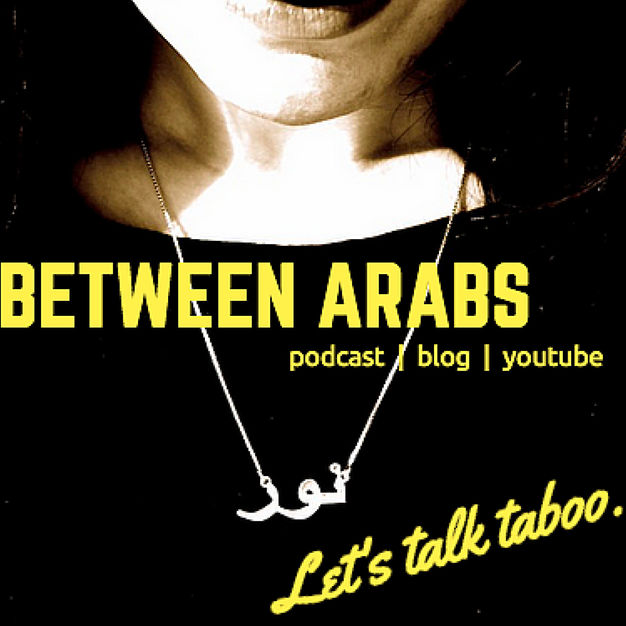 Between Arabs
Between Arabs
 Safina Society
Safina Society
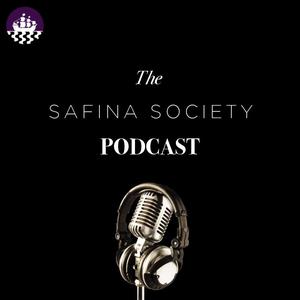 The Safina Society Podcast
The Safina Society Podcast
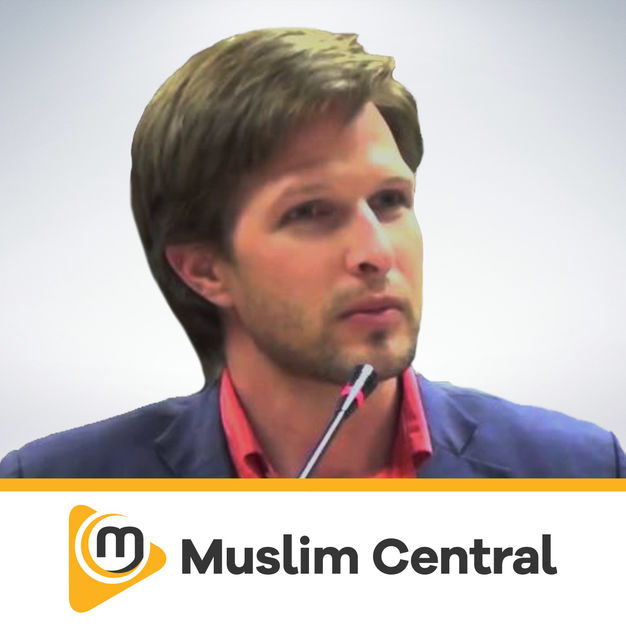 Jonathan Brown
Jonathan Brown
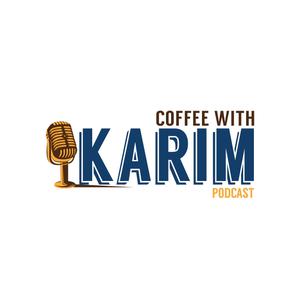 Coffee with Karim
Coffee with Karim
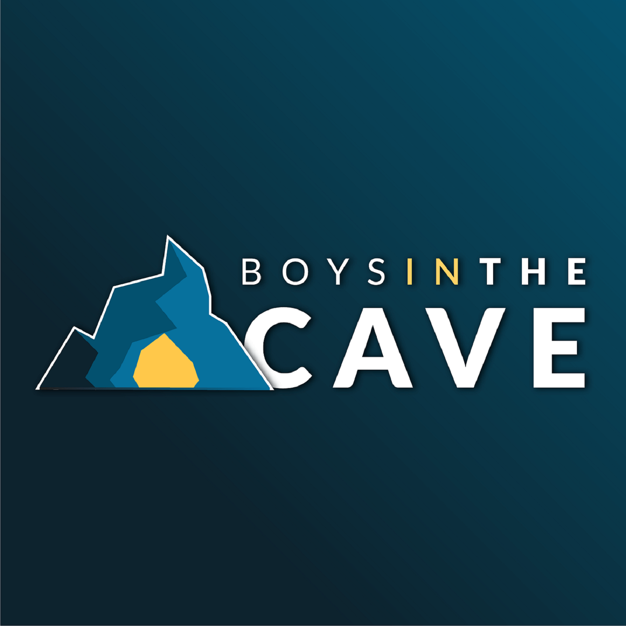 Boys In The Cave
Boys In The Cave